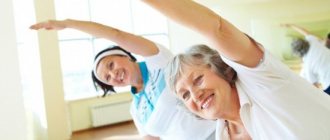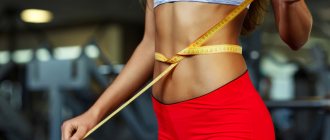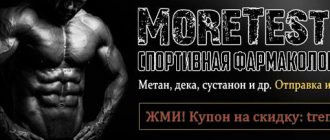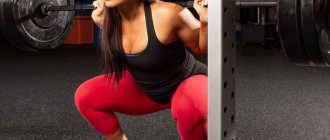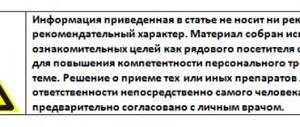What are the benefits of sport?
Based on all that has been said, it has become clear that sport has many advantages over a monotonous sedentary lifestyle. Intensive training leads to:
- Metabolic processes improve. For a person who wants to lose weight, restore their figure and look stunning, sport is a panacea for all problems. Thanks to exercise, there is a natural breakdown of fats, which are burned and disappear, leaving only muscle mass. No diet will affect the condition of the body as much as regular physical activity.
- The immune system is strengthened. Many people wonder: why do endless colds happen? Why does the body require antibiotics and hormonal agents to treat fairly simple diseases? The answer is simple. It lies in the lack of movement, which in itself is synonymous with health.
- When training, there is no need for bad habits. The body begins to “protest” against everything that can harm it. This will not happen if a person does not exercise regularly. And all because sport trains not only muscles, but also willpower, discipline, and even improves mental abilities. These three qualities will not allow a person who enjoys the process of exercising to exchange his healthy, beautiful body for temporary, dangerous pleasures.
- The spine and the entire skeleton receive the necessary load for health. To prevent bone diseases from developing, sports are necessary. At the same time, a beautiful, straight posture cannot but please the owner, causing admiring, sometimes even envious glances from others.
- The muscles become elastic and acquire the desired firmness. Strength and strength of muscles make it possible to participate in interesting sporting events, games and even competitions. A person without proper body preparedness will not be able to enjoy hiking in the mountains, river rafting and other active recreational activities.
The importance of sport in human life
- Sport is an integral part of a healthy lifestyle. A trained person is socially active, does his job, is less susceptible to illness, and recovers faster.
- Physical activity improves immunity. The body successfully fights colds, the period of illness is shorter, without complications.
- Sport reduces the likelihood of the most common diseases - heart and blood vessels, which lead in the number of deaths. Physically active people lose excess weight and fluid, blood pressure and blood cholesterol decrease. Tissues and organs are actively saturated with oxygen, metabolic processes proceed more intensely.
- Sport has social significance.
Sports life is a series of training, competitions, and interaction between participants. A parallel reality, where a person realizes himself, proves his worth. Physical activity - Sport is a means of getting rid of negativity and aggression. Scientists have proven that physical activity releases stress hormones. After training, a person is calmer and able to make informed decisions. Stress resistance is important in our world, but this does not mean that you need to accumulate negativity in yourself. It is important to find an activity that reduces emotional stress.
- Sport is a mechanism for learning about your body and its capabilities, part of the system of knowledge about the world. Thinking athletes act like scientists, receive information from different sources, and look for answers to the questions posed. In this regard, team sports are interesting, where the strategy of each player is required. The success of the entire team depends on the preparation, physical condition and thinking ability of each member.
- Sport is an excellent basis for international cultural exchange. To play common sports, participants do not need to speak a foreign language. Athletes travel a lot, get acquainted with the culture and customs of peoples. Such international cooperation promotes rapprochement and the establishment of close ties.
- The sports industry is part of the economy. Modern sports require more than just human effort. Many achievements become real when using high-quality equipment, shells, and structures. In the economies of developed countries, a huge part of the funds is allocated for the construction of sports facilities and the creation of production of sports equipment and equipment. The economy and athletes receive huge amounts of money from advertising, ticket sales, sports symbols, and broadcasts of major international competitions.
- Sport is the organization of leisure and entertainment events. The competitions attract spectators with their entertainment, spirit of struggle and unpredictability. A huge part of bets is focused specifically on sporting events. Many players in the betting market dream of predicting victory or loss.
- Sport is a school of life, a social and pedagogical system, the education of moral and psychological qualities. Athletes develop willpower, a sense of duty, the ability to concentrate all their strength, honesty, perseverance, a sense of respect for an opponent, and the ability to work in a team. A person in difficult situations shows true feelings and understands himself better.
Proper time management: general principles for getting a lot done
The influence of sport on the entire body system
1) Musculoskeletal system.
The “working” apparatus of the human body resembles a well-oiled machine, where all elements are securely fastened and have a strong relationship. This is the composition of bones, veins, muscles, joints. During movement, the muscles come into a state of activity, while the central nervous system receives a kind of load. If you train constantly, the muscle fibers will become thicker and stronger. Cells activate their activity, become healthier and more susceptible to negative factors. As a result, the body is intensively saturated with minerals, oxygen and many vitamins. And this is the key to health and increased immunity. With everything, you need to approach sports issues wisely and not overload your joints. With too much, unjustified load, you can get osteoarthritis and osteochondrosis, diseases that indicate damaged joints. It must be remembered that an individual load should be compiled for each person, since everyone’s strength and health are different. In addition to exercise, you need to strengthen yourself with vitamins that stimulate the strengthening of muscles and bones. Vitamin C will prevent stretch marks, which are inevitable with constant training. Minerals, such as calcium, phosphorus, help improve bone structure and protect against fractures during physical activity.
2) Cardiovascular system.
Regular exercise in moderation strengthens blood vessels. Thanks to this, the walls of the veins become dense and elastic, not subject to stretching. In this case, varicose veins are not at all dangerous, and the appearance of blood clots may be a nightmare, but will not affect reality in any way. Physical activity awakens an increase in red blood cells, which saturate all tissues and muscles with oxygen. Improving blood composition cannot but affect the condition of the body, improving many life processes. Athletes have a more powerful heart, unlike those who avoid stress on the body. In active people, the organ is able to pump large amounts of blood and also survive stressful situations without much harm to the body. Experts who study heart disease advise older adults to start exercising as soon as possible. This can prevent complications of hypertension and manifestations of atherosclerosis.
3) Pulmonary system.
If you compare the lungs of a sports person and someone who is lazy to work on themselves, they even differ in size. If you constantly train, you can increase your lung capacity. And, therefore, increase the supply of oxygen, which nourishes all tissues with vital forces. The bronchi expand, preventing inflammatory manifestations and congestive processes. There is constant healthy “ventilation” of the respiratory organs. This is why athletes almost never suffer from bronchitis and other colds. They also do not have cases of pneumonia.
4) Metabolism.
Athletes have a proper, intense metabolism, which prevents obesity and many diseases. Protein metabolism occurs steadily, and constant exercise saturates the body with nitrogen. If there is a lack of nitrogen, a person can quickly lose weight to the point of becoming painful. In addition, it is a provocateur of many ailments, such as asthenia and so on. Physical activity allows proteins to circulate throughout the blood. This increases muscle mass, strengthens bone structure, preventing diseases of the supporting apparatus. Carbohydrates also receive a healthy metabolism, since they do not turn into fats. Carbohydrate enzymes serve to replenish energy and repair damaged tissue. Thanks to this, sucrose and fructose will not cause diabetes and other dangerous diseases. You need to know that during intense training, where physical strength is expended, carbohydrates are burned. And with simple but long-term exercise, fat is destroyed. Exercise promotes rapid fat burning. At the same time, metabolism improves and becomes more active. You can quickly correct all problems in your organs, and also acquire a fresh, graceful figure that you can be proud of.
5) Immune system.
To strengthen your immune system, you need to avoid overdoing it. Because inappropriate, too tiring loads can be harmful. First you need to find out which sport is best suited so that it brings pleasure and is not a burden. This could be running, walking, horseback riding or cycling. You must always take into account your capabilities and abilities. Constant, properly selected activities strengthen vitality and contribute to resistance to viruses and other negative factors.
Project on the topic: “Does sport help or harm human health?”
Slide 1
The project was prepared by Student 11 “A” of class MBOU gymnasium No. 36 Mirzakhanyan Hasmik
Slide 2
Find out how sport affects human health
Slide 3
Study literature related to the topic of sports Analyze all aspects of this topic Draw “-” and “+” Come to your own conclusion
Slide 4
Sport (English sport, abbreviation from the original English disport - “game”, “entertainment”) is an activity of people organized according to certain rules, consisting of a comparison of their physical and intellectual abilities, as well as preparation for this activity and interpersonal relationships that arise in its process.
Slide 5
1. Team sports 1.1 Individual 1.2 Team 2. Cyclic sports 3. Combat sports 3.1 Wrestling 4. Strength sports 5. Complex coordination sports 6. Extreme sports 7. Technical sports 8. Applied sports 9. Aviation sports 10.Esports
Slide 6
Is sport interesting to our generation? Do you need to play sports?
Slide 8
Types of sports Leading social functions Categories of activity theory Principles Subject Leading motivation of athletes Form of activity Folk (mass) Educational (phenotype improvement, preparation for life, health improvement, entertainment and recreation) Psychophysical and intellectual capabilities of an athlete Today to be better than yesterday, for the sake of success in study, work, defense of the Fatherland, etc. Action in the structure of other activities (study, work, defense of the Fatherland, high performance sports, etc.) Accumulation of potential (participation in sports is important, not the result) High performance sport Olympic Peacekeeping (an indicator of the gene pool of a specific country, an alternative to war ) Sports result Achieve the highest sports result for the sake of the Motherland and peace on earth Peacemaking activity Social self-realization (honestly strive for the highest result for the sake of the Motherland and the cause of peace on earth) Commercial Entertainment (catalyst of the economy) Sports result Achieve the highest sports result to obtain maximum income Activities for providing entertainment services Individual self-realization (do everything to get paid more)
Slide 9
Why do you still need to play sports? And, I emphasize, including professional, big sports. In short: this is the best life training. Why is professional, big-time sport better than amateur sport? No, not with hypothetical fame and money in the first place. Big sport is distinguished by its level of responsibility. This is where the habit of working conscientiously is developed. And also - to discover new possibilities in yourself, to explore previously unknown depths of psychology. Here the ability to follow the path to the end and put a spectacular point at the end of the path is formed. In principle, this can be learned without sports - by adulthood. But athletes, as a rule, have mastered this art from a young age - and therefore have an advantage over ordinary people.
Slide 10
Athletes overcome diseases easier than ordinary people - it’s in their blood. An unsportsmanlike person is defenseless against disease and aging. His “tools” are medications and queues at the clinic. An athlete, even a former one, is armed and prepared. He will be able to mobilize additional resources of the body in time, if necessary. And sport is also about communication, connections and acquaintances, after all.
Slide 11
Sport certainly helps strengthen and temper a person’s health, but if you overdo it, sport will have a negative and destructive effect on the physical condition of a healthy person.
Exciting sports
Sport is not only a useful program that needs to be followed daily. For some people, doing daily exercise becomes a chore and no longer enjoyable. And without constant support of interest, there will be no incentive to exercise, despite the desire to lose weight or straighten your posture.
Athletics is considered the most relevant, simple and interesting sport.
It includes various exercises, the main one being running. If there is a good park or equipped stadium near your house, then you can take advantage of the opportunity by going for regular runs. You can never get bored with running because you can choose a different route every time. And the process itself contributes to the release of adrenaline. You can train in pairs or in a group, come up with small competitions to maintain a fighting spirit and, most importantly, interest. As a result, the athletic enthusiast gains strong leg muscles and a strong heart system, as well as overall weight loss. A pleasant sport is swimming. You can sign up for periodic visits to the pool. Water stimulates cells, tones the skin and helps burn fat. It is not necessary to swim faster than someone else; it is important to accustom yourself to minimal loads and gradually complicate the task. Nothing beats walking. You can go on a hike or choose a path for intense walking every day. It is better to train in a group so that you can support each other. Hiking develops many personality traits, in addition to improving physical fitness. Passion for tourism will increase the level of endurance and give you beautiful, healthy posture. In winter, not everyone will risk going on a long hike or force themselves to run in the cold every day. There is a great option - skis. This is a combination of business and pleasure, when you can take the whole family and go on an unforgettable walk. Winter air will give you oxygen saturation and help strengthen your immune system while skiing. But in cold weather you can practice at home, for example, dancing. Active dancing can safely be called a creative type of sport. Exercising to music will help you master your body, train your back and strengthen overall muscle tone. From this it is clear that the absence of sports in a person’s life is just an excuse and a large percentage of laziness. If you wish, you can choose the sport that you like best and is suitable for a certain body type and health condition. Disease prevention lies in physical activity, and the sooner each person understands this, the better for him.
